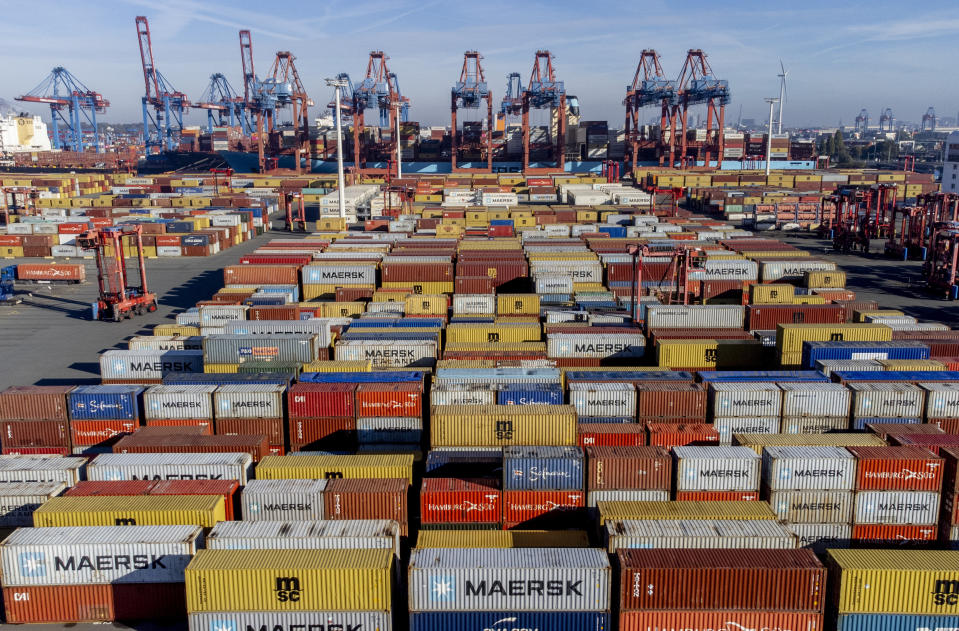German economy seen stagnating in Q4, grew 1.9% in 2022
BERLIN (AP) — The German economy appears to have stagnated in the fourth quarter, the national statistics office said Friday, while Europe's biggest economy managed full-year growth of 1.9% — slowing somewhat from 2021 as the impact of Russia's war in Ukraine weighed on its performance.
Germany releases a preliminary full-year gross domestic product figure before full December economic data is available, and an official fourth-quarter number isn't due for a few weeks yet.
The head of the Federal Statistical Office, Ruth Brand, said that “according to what we know so far, gross domestic product stagnated in the fourth quarter of 2022” compared with the previous three-month period. She cautioned that there was still “a great deal of uncertainty” about that estimate.
If the estimate holds up, stagnation in the October-December period would be a better showing than expected. The economy was long expected to shrink in last year’s fourth quarter and in the current first quarter. In last year's third quarter, the economy grew 0.4%.
Germany's full-year growth declined from 2.6% in 2021. In 2020, when the economy took a big hit from the COVID-19 pandemic, GDP shrank by 3.7%.
Brand said the economy was 0.7% bigger last year than in 2019, the last year before the pandemic.
“In 2022, the overall economic situation in Germany was affected by the consequences of the war in Ukraine and the extremely high energy price increases,” she said.
“There also were serious material shortages and delivery bottlenecks, massively rising prices, for example of food, skilled labor shortages, and the continuing though fading COVID-19 pandemic," Brand added. "Although these difficult conditions persist, the German economy as a whole managed to perform well in 2022.”
Germany’s annual inflation rate slipped back from a peak of 10.4% in October to 8.6% in December, but galloping prices remain a major headache.
A potential energy crunch following Russia’s invasion of Ukraine and the end of its gas supplies to Germany also has been a concern. But Germany’s network regulator said last week that a gas shortage was “increasingly unlikely” this winter.
ING economist Carsten Brzeski said the fourth-quarter estimate is likely to be “revised somewhat," pointing to potential disruption from a spell of cold weather and the impact of the energy crisis on consumption and production.
For the whole year, the catch-up effect after the end of pandemic lockdowns “outweighed the economic fallout from the war in Ukraine,” with help from government support packages, Brzeski said in a research note. But the post-pandemic rebound is over and won't support the economy this year, he added.
“The adverse effects from the war and the energy crisis are likely to prevail and will be a drag on the economy,” Brzeski wrote, pointing to months of weakening factory orders and weak consumer confidence among other factors.


